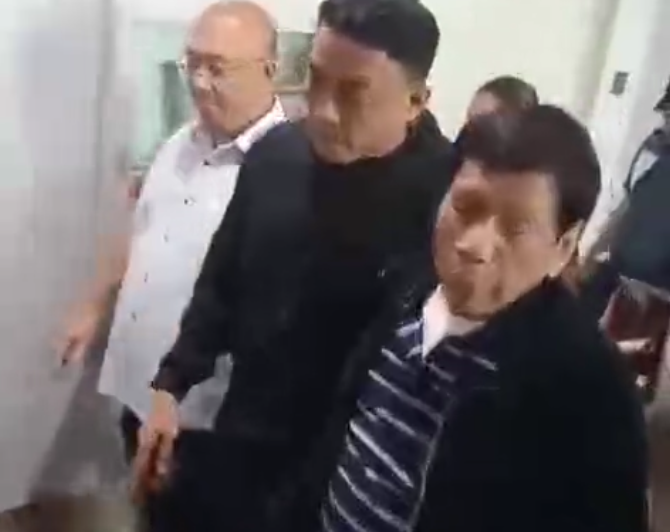Rodrigo Duterte Arrested and Flown to The Hague to Face Crimes Against Humanity Charges
Executive Summary
Former Philippine President Rodrigo Duterte was arrested at Manila’s international airport and extradited to The Hague to face charges of crimes against humanity at the International Criminal Court (ICC). The charges stem from his brutal anti-drug campaign, which led to thousands of extrajudicial killings between 2011 and 2019. Duterte’s supporters, including his daughter and Vice President Sara Duterte, have denounced the arrest as foreign interference, while human rights advocates and victims’ families hail it as long-overdue justice. His arrest is a historic moment, marking the first time an Asian leader has been detained on an ICC warrant.
Analysis
The arrest and extradition of Rodrigo Duterte represent a seismic shift in international justice and Philippine politics. Duterte, who once relished his strongman image and boasted about his ruthless crackdown on drug suspects, now finds himself in the custody of the very international tribunal he dismissed as illegitimate. His downfall is a remarkable turn for a leader who maintained high popularity throughout his presidency, despite—or perhaps because of—his violent campaign against crime.
The ICC warrant, issued on March 7, accuses Duterte of crimes against humanity, particularly the widespread and systematic killings that defined his so-called “war on drugs.” Official police figures put the death toll at over 6,000, but human rights organizations estimate the number could be as high as 30,000, with many victims being young men from poor communities. Duterte’s tactics, which included extrajudicial executions and incentivizing police to kill drug suspects rather than arrest them, earned international condemnation but remained widely supported in the Philippines.
Duterte’s arrest at Manila’s airport, after returning from Hong Kong, was met with shock and chaos. He protested the charges, demanding to see the legal basis for his detention, while his lawyers attempted to block his extradition through the Supreme Court. His daughter, Vice President Sara Duterte, called his extradition “a kidnapping,” criticizing President Ferdinand Marcos Jr. for allowing a foreign court to take custody of a former head of state. The move signals a deepening rift between the Marcos and Duterte families, once political allies but now embroiled in a power struggle.
For the victims’ families and human rights groups, Duterte’s arrest is a long-awaited moment of justice. Many gathered in the streets to celebrate his capture, holding pictures of loved ones killed in drug raids. “This is the downfall of an emperor,” said former Senator Antonio Trillanes, who played a key role in bringing Duterte before the ICC. The arrest also sends a powerful message to other authoritarian leaders: impunity is not guaranteed, and even the most powerful figures can be held accountable.
Duterte’s extradition is not just a legal milestone but a political earthquake in the Philippines. His populist influence remains strong, and his arrest could galvanize his supporters ahead of the country’s midterm elections in May. His daughter’s position as vice president adds another layer of complexity, as she may now seek to mobilize Duterte loyalists against the Marcos administration. The coming weeks will determine whether Duterte’s downfall signals the end of an era—or the beginning of a new, more contentious chapter in Philippine politics.
